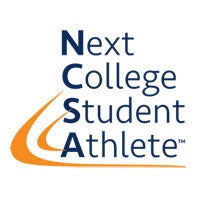Next College Student Athlete recruiting coach James Steward offers all the answers to the recruiting calendar when he sits down with MaxPreps host Steve Montoya in this 'Making the Jump' podcast.
The NCAA's recruiting calendar can be very intimidating with all its
dates, bars and colors, but James Steward clears it all up.
The
Next College Student Athlete recruiting coach sits down with MaxPreps
host Steve Montoya for a 'Making the Jump' podcast not only to explain
each period of the calendar, but he offers helpful advice for potential
college players and their parents.
MAKING THE JUMP: Subscribe on iTunesIn this segment, Steward breaks down the evaluation period, which is where coaches come watch the potential college player compete.
"During the fall, obviously, the coaches are getting out on Friday night and watching games," Steward said. "If it's a coach you've been communicating with, you might see them up in the stands."
There are a couple of evaluation periods, including a six-week span from April 15 to May 31 in the spring.
"For those guys who want to play Division 1 football, this is an incredibly important time in the process," Steward said. "If you're a junior and you think you're a D1 kid, you should be getting visits in that time. If you're not, then it's a sign you might need to look at other levels."

To start your free NCSA recruiting
profile click here.
Whatever one does, Steward says, don't get discouraged. Just be realistic.
In the
entire 23-minute podcast, Steward offers countless tips to aspiring
college football players, though the NCSA also counsels prep athletes
pursuing
all other sports.
Steward spends the rest of the podcast talking about the importance of highlight tapes, timely
release of transcripts and taking college tests, evaluation camps,
social media, your high school coach, picking the appropriate college
and learning to communicate with adults.
He notes as vital as the
high school coach can be in the process, it's not something a potential
college player should count on.
"Getting
you recruited is not their job," he said. "If they are able to help you
and willing, that is a bonus and thank them immensely. Absolutely, take
their assistance.
"But ultimately this is going above and beyond their job
description. This is on you. If you want to play college football, it's
not the coaches' job, it's not mom and dad's job. You're going to be the
guy going out and doing that."